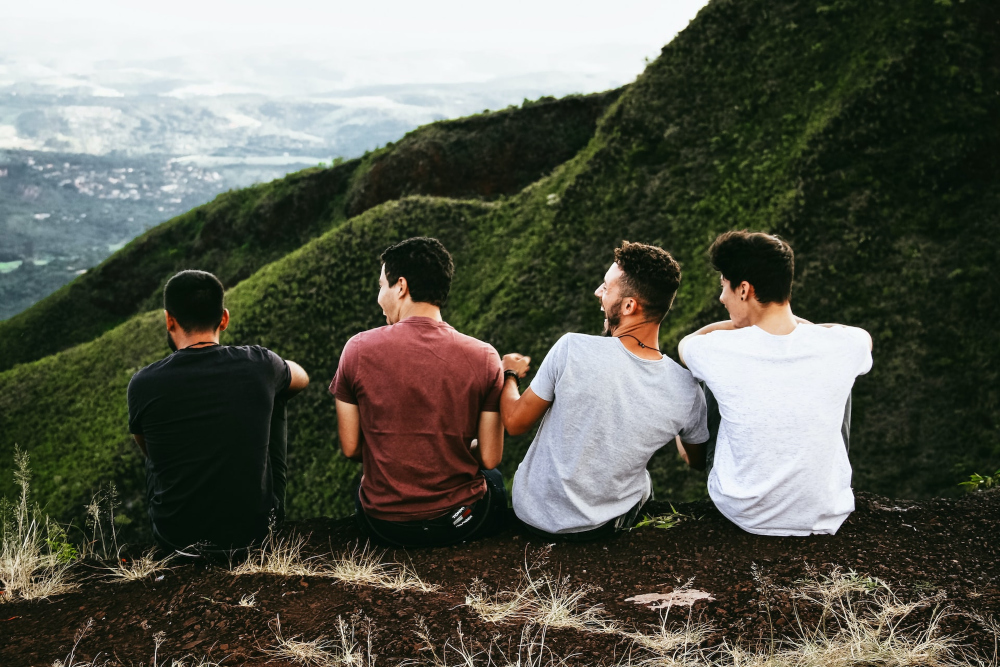
If you are experiencing low moods and are concerned you may slip into depression, there is one factor that may be the most important of all in preventing its onset.
‘Depression is the leading cause of disability worldwide’ and ‘…a major source of suffering and lost productivity globally…’ say Choi et al. (2020) in their research paper looking at over 100 factors that people can potentially modify for personal mental health gains [1].
In their study, the researchers set out to find out what might prevent or exacerbate our descent into clinical depression. The researchers used a sample of over 100,000 adults of white British ancestry who enrolled in UK Biobank.
From the original assessment of over 100 factors, the one that most robustly withstood all the testing was: social support factors. This came out on top even for those who have experienced traumatic life events and/or have a family history of depression.
Let that sink in. Social support was found to be the single most important factor in preventing the onset of depression.
The research found that confiding in those you trust is protective for depression and that frequently visiting with family and friends may also be a vital part of social engagement that may protect you from depression.
They explain:
‘Findings align with the literature on social connections and mental well-being (4) and with our recent study in military personnel demonstrating that greater social cohesion was linked to reduced risk of incident depression despite high genetic or environmental risk (33). Emergence of social factors as the most robust among many other modifiable targets suggests that efforts to counteract disconnection at the societal and individual levels—whether by social activity prescriptions (34) or reducing the stigma of seeking emotional support—should be central to an effective depression prevention agenda.’
‘Social activity prescriptions’ – I love that! This is what we need more of, doctors prescribing social interactions with friends and family – something backed by a wealth of research given we know:
- socialising increases our happiness [2];
- being in a positive emotional state increases our resilience [3];
- socialising helps prevent depression as we see here;
- and socialising would in turn help reduce the risk of early death considering people die younger due to loneliness [4] and depression [5].
That’s right, mental health issues can reduce your life span just as physical health issues can. As I mention in Anxiety Free, ‘A statistical review of 203 studies from twenty-nine countries in six continents left researchers concluding that mental health disorders, including anxiety and depression, resulted in a lifespan that was ten years shorter on average compared with their mentally healthy counterparts.’ [5]
Furthermore, depressive symptoms and loneliness not only kill, they are also contagious, as highlighted by the Framingham Heart Study. Depressive symptoms [6], and loneliness [7], spread through social networks up to three degrees of separation: to friends, to friends’ friends, to friends’ friend’s friends, both online and offline.
So, let’s put you in control of your mental health and happiness.
Give Yourself A Social Activity Prescription
Consider what dose of social connection you need to prescribe yourself and what form that dose needs to take. Things to consider:
- Decide the frequency. For example, do you need to connect with loved ones twice a week or almost every day?
- Determine the time of day. Do you need a social interaction dose with your morning meal? Or do you need it at 5pm each day to help you segue from work day to play time? Or do you want to take it in the evening?
- Describe the dose. What do you need, how do you need it, and who will best provide it? Do you need to offload? Do you want guidance and empowerment? Or do you need a good laugh? What medium: text, video chat, face-to-face interaction, human touch? And who do you trust to give you the right dose of what you need right now?
Positive human relationships are vital for good mental and physical health, happiness, resilience and productivity. Look after others as well as yourself, so that we can all flourish together.
References:
1. Choi, K.W., Stein, M. B., Nishimi, K. M., Ge, T., Coleman, J. R.I., Chen, C., Ratanatharathorn, A., Zheutlin, A. B., Dunn, E. C., Breen, G., Koenen, K. C., Smoller, J. W. (2020). An Exposure-Wide and Mendelian Randomization Approach to Identifying Modifiable Factors for the Prevention of Depression. American Journal of Psychiatry; DOI: 10.1176/appi.ajp.2020.19111158
2. Quoidbach, J., Gross, J. J. and Mikolajczak, M. (2015). ‘Positive Interventions: An Emotion Regulation Perspective’, Psychological Bulletin, 141(3): 655–93.
3. Galatzer-Levy, I. R., Brown, A. D., Henn-Haase, C., Metzler, T. J., Neylan, T. C. and Marmar, C. R. (2013). ‘Positive and Negative Emotion Prospectively Predict Trajectories of Resilience and Distress among High-Exposure Police Officers’, Emotion, 13(3): 545–53.
4. Holt-Lunstad, J., Smith, T. B., Baker, M., Harris, T. and Stephenson, D. (2015). Loneliness and Social Isolation as Risk Factors for Mortality: A Meta-Analytic Review. Perspectives on Psychological Science, 10(2): 227–37.
5. Walker, E. R., McGee, R. E. and Druss, B. G. (2015). Mortality in mental disorders and global disease burden implications: A systematic review and meta-analysis. JAMA Psychiatry, 72(4): 334–341.
6. Rosenquist, J., Fowler, J. and Christakis, N. (2011). Social network determinants of depression. Molecular Psychiatry, 16(3): 273-281.
7. Cacioppo, J. T., Fowler, J. H., and Christakis, N. A. (2009). Alone in the crowd: The structure and spread of loneliness in a large social network. Journal of Personality and Social Psychology, 97(6): 977–991.













